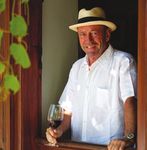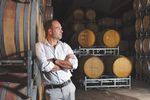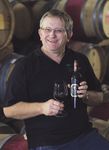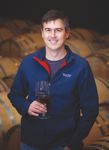Not so new world South Africa boasts a number of wine farms which date back to the late 1600s, and some of their wines have recently achieved ...
←
→
Page content transcription
If your browser does not render page correctly, please read the page content below
SOUTH AFRICA
– HISTORY –
Not so new world
South Africa boasts a number of wine farms which date back to the late 1600s,
and some of their wines have recently achieved great results in the
Gilbert & Gaillard International Challenge.
By Joanne Gibson – Photographs: Courtesy of the estates
106 WINTER 2020 GILBERT & GAILLARD - THE FRENCH EXPERTS ON WINETimeless beauty: Boschendal with the Simonsberg mountain as a backdrop
SOUTH AFRICA
– HISTORY –
S
outh Africa is unique among all the world’s wine-
producing nations in that it knows the exact date on
which its wine industry began. On 2 February 1659, the
Dutch East India Company’s first commander of the
Cape, Jan van Riebeeck, wrote in his diary: “Today, praise
be to God, wine was made for the first time from Cape grapes”.
There are several South African wine farms which were established
in the 1680s, with Groot Constantia claiming to have produced
wine continuously since 1685. That is when the tenth commander
of the Cape, Simon van der Stel, was granted the enormous tract of
land he named Constantia. Groot Constantia was created through
a sub-division of this land following Van der Stel’s death in 1712,
and over the following century its lusciously sweet wines became
internationally famous – sought after by nobility and immortalised
in poetry and prose.
WINTER 2020 GILBERT & GAILLARD - THE FRENCH EXPERTS ON WINE 107SOUTH AFRICA
– HISTORY –
Groot Constantia CEO Jean Naudé and winemaker Boela Gerber are delighted with the
international success of their wines in recent years
Today Groot Constantia is a National Monument, a living museum
tasked with preserving the history and cultural legacy of the South African
wine industry, and while it produces a wide range of award-winning
wines, a key focus is its modern recreation of legendary sweet Constantia,
a blend of red and white Muscat de Frontignan grapes named Grand
Constance. The 2016 vintage has now received 98 points in the Gilbert &
Gaillard International Challenge – the highest rating ever achieved by a
South African wine – followed closely by the Cabernet Sauvignon-based
Gouverneurs Reserve 2017 with 96 points.
“This recognition is the result of years of hard work”, says Boela Gerber,
winemaker at Groot Constantia since 2001. “We are extremely pleased to
consistently bring awards home across a wide spectrum of wines – wines
that are worthy of their ancient heritage”.
CEO Jean Naudé points out that Groot Constantia’s wines have
collectively won more than 100 international gold awards over the past
decade. “This kind of achievement is not something that happens by
luck; it comes after hard work over many years in the vineyards and cellar
by various teams of people all making their contribution”.
Boschendal near Franschhoek also claims a founding date of 1685, which
is when it was granted to the French Huguenot Jean le Long. After it was
transferred to Abraham de Villiers in 1715, it stayed in the De Villiers
family for 164 years. Today it is owned by DGB, one of South Africa’s
largest independent wine producers and distributors, and its focus is
less on the past than on the present and future (through sustainable
winegrowing).
108 WINTER 2020 GILBERT & GAILLARD - THE FRENCH EXPERTS ON WINESOUTH AFRICA
– HISTORY –
“Every bottle should tell the Boschendal terroir story
elegantly and classically without words”, says winemaker
Jacques Viljoen. “My philosophy is to strive to find the
correct balance for every vintage through a combination of
timing, respecting the fruit and teamwork”.
Viljoen points out that Boschendal has a rich history
in traditional-method sparkling wine production, having
produced its first Méthode Cap Classique bubbly (only
the second in South Africa) in 1981. Its Grande Cuvée
Brut MCC 2014 has now been rated 92 points by Gilbert
& Gaillard, while its ultra-premium Black Angus 2017 has
scored 91 points. Sourced from the Helderberg appellation Jacques Viljoen joined the Boschendal team as cellarmaster in 2018,
in Stellenbosch, this Shiraz-led blend of the best barrels is having previously been head winemaker at Zevenwacht since 2005
named after Boschendal’s prized herd of Black Angus cattle
and forms part of the top-tier Heritage Collection.
Another old Franschhoek farm now proudly owned by DGB
is Bellingham, which was granted in 1693 to the Dutchman
Gerrit Janz van Vuuren and his French Huguenot wife,
Suzanne Jacobs. They named it Bellinchamp (‘pretty fields’)
and planted the first 1,000 vines, after which it passed from
family to family until Bernard and Fredagh Podlashuk
purchased it in 1943. The Podlashuks restored the somewhat
derelict homestead and replanted the vineyards, and in
1949 they released the Cape’s first rosé followed by a single-
varietal Shiraz in 1956.
Today, winemaker Richard Duckitt continues to be inspired
by Bellingham’s history of innovation, ingenuity and
foresight in producing contemporary, structured wines
with an unmistakable sense of place and style. His Bernard
Series of premium handcrafted wines includes the Bush
Vine Pinotage 2017 (91 points) and Old Vine Chenin Blanc
2019 (90 points), and he admits the latter is one of his
favourite wines. “We use minimal intervention techniques
including natural fermentation along with a combination
of barrels, foudres and amphorae to showcase the best of
these old vines, making dynamic wines that offer texture
and complexity”.
Also granted in 1693 was the Stellenbosch estate Meerlust,
which has been in the Myburgh family since 1756. “At
Meerlust, it is our philosophy to capture in our wines
the intrinsic character of our vineyards, the diversity and
complexity of our soils and our unique coastal macroclimate”,
Richard Duckitt has been the head winemaker at Bellingham since
says eighth-generation owner Hannes Myburgh. 2017
WINTER 2020 GILBERT & GAILLARD - THE FRENCH EXPERTS ON WINE 109SOUTH AFRICA
– HISTORY –
Hannes Myburgh is the eighth-generation owner of Meerlust, Former KWV head winemaker Wim Truter joined the Meerlust
which has been in his family since 1756 team in May 2020
Meerlust is perhaps best known for having produced one of the first
Bordeaux-style blends in South Africa, the iconic Rubicon, with the
maiden 1980 having been made by Giorgio Dalla Cia, the first of only
three winemakers in the modern era. Chris Williams was responsible
for the Rubicon 2017, which has now rated 92 points in the Gilbert
& Gaillard International Challenge, as has the Meerlust Chardonnay
2019, but the reins have now been taken by former KWV head
winemaker Wim Truter.
“It is a great honour, given the position of the brand and the legacy
of those who came before me, with accompanying pressure not to
disappoint Meerlust’s many loyal consumers”, he says. “However, the
environment that has been created and the people involved make it
an exhilarating prospect. So much has been achieved and yet there is
still so much to look forward to”.
Established in 1694, Rust en Vrede in Stellenbosch’s Helderberg
appellation had several owners until 1977 when it was purchased by
the well-known former Springbok rugby player, Jannie Engelbrecht,
and his wife, Ellen. “My parents immediately embarked on a full
restoration of the estate”, says current proprietor Jean Engelbrecht.
“First they restored and equipped the original winery, and in 1978 my
father made the first vintage of the modern era”.
Since then, Rust en Vrede has specialised in the exclusive production
of red wine, with the flagship Estate blend reflecting the estate’s terroir
by mirroring its plantings: approximately 60% Cabernet-Sauvignon,
110 WINTER 2020 GILBERT & GAILLARD - THE FRENCH EXPERTS ON WINESOUTH AFRICA
– HISTORY –
Coenie Snyman has been the winemaker at Rust en Vrede proprietor Jean Engelbrecht, Vergelegen’s talented and charismatic winemaker
Rust en Vrede since 2006 whose parents bought the historic estate in 1977 since 1998, Andre van Rensburg
30% Syrah and 10% Merlot, with each variety, harvest-parcel and
individual clone vinified separately – since 2006 by Coenie Snyman,
whose 2017 vintage has achieved 90 points in the Gilbert & Gaillard
International Challenge. “I am fortunate to work with a team like ours
and privileged to call Rust en Vrede my home”, says Engelbrecht.
Dating back to 1694, it was way back in 1708 that the wines of
Vergelegen in Somerset West were first described as being “of a
particularly good sort and flavour”. Originally granted in 1700 to
Cape governor Willem Adriaan van der Stel, this magnificent estate
with its 18 gardens, manor house filled with antiques and tapestries,
restaurants and of course award-winning wines has been owned
by global mining company Anglo American since 1987. Andre van
Rensburg was appointed as winemaker in 1998, and his wines are
renowned for their elegance and consistency.
“Vergelegen’s winemaking philosophy is that there must be harmony
between the old and new”, he says, revealing that his Reserve range
showcases the cornerstone grape varieties of the Vergelegen brand,
with his Reserve Merlot 2015 having achieved a 94-point rating while
his Reserve Cabernet-Sauvignon 2014 scored 95 points. “I’ve never
viewed wine as an investment”, he says. “It’s something you should
experience often because it enriches your life, lifts your soul and makes
you a better human being. It’s like going to the opera or reading books.
It’s an investment in your personal wellbeing”.
We raise a toast to South Africa’s unique vinous history.
WINTER 2020 GILBERT & GAILLARD - THE FRENCH EXPERTS ON WINE 111You can also read



























































